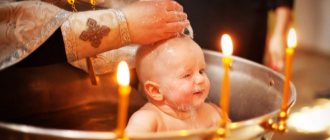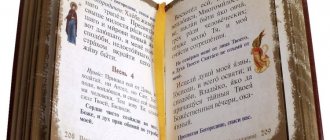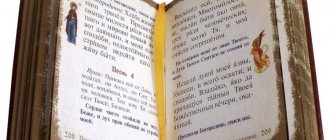The baptism of a child in a family of believers is a reverent event that is awaited from the moment the baby is born. This is the first Sacrament with which the church greets a person who has come to God for the first time. The choice made on this day determines the entire future life of the child.
When to baptize a child, which church to choose? Is the time of year important at the time of baptism? Who should be chosen as godparents, what duties are assigned to them and what is their responsibility? How does the baptism procedure take place?
What needs to be prepared before the christening, and how to celebrate after? This is only a small part of the questions that arise for caring representatives of the interests of the child.
What is child baptism?
Child baptism is the first of the 7 sacraments, which has its own ritual and traditions. After christening, the child is considered to be initiated into God, and his spiritual education is entrusted to the godparents. From this moment on, a Guardian Angel is assigned to the person.
The ceremony is usually performed no earlier than the 40th day of birth. Why exactly 40 days? The fact is that, according to church canons, a woman who has given birth to a child cannot enter the church for 40 days after giving birth, as she is considered “unclean.” Therefore, until this time, the mother stands at the door of the church, handing over the child to the godparents. It is also believed that at an earlier age the process will be accepted much more easily. The older the child, the more difficult it is to immerse him in the font.
40 days after giving birth, a special prayer is read over the mother’s head, after which she can attend church services.
It happens that people are baptized earlier, in an unfamiliar environment. This exception is related to the health of the child. So, there are cases of baptism of a child in a hospital or at home. At the same time, the ceremony itself can be performed by the child’s mother, and then the priest will anoint the child in the church.
The ritual itself is not much different from the ancient ones. And it consists of the main actions. First, prayers of prohibition are read over the child, then renunciation of Satan and reunification with God, and then the godparents pronounce a confession of the Orthodox faith. After the Announcement, immersion into the font occurs.
Next, the child is wrapped in kryzhma
The godfather of the same sex as the child takes him in his arms.
Then the priest performs Confirmation, aimed at strengthening the child in spiritual life.
After Confirmation, with the child in their arms, the godparents walk around the font behind the priest three times. They do this as a sign of the joy of reunification with God and eternal life in the Kingdom of Heaven. Then the priest reads excerpts from the message and the Gospel, and at the end of the reading, using a special sponge, washes the myrrh off the baby’s body, saying the words:
Then, the child’s hair is cut crosswise, saying the words:
The process of cutting hair symbolizes submission to God, a kind of sacrifice. Actually, this baptism is considered completed. Next comes the process of churching. In his arms, the priest carries the child around the temple, introducing him to the church.
It is worth noting that according to church canons, a woman cannot be a clergyman. Therefore, only boys are brought into the altar itself.
After the crowning, the child is handed over to the parents.
Washing with water may differ depending on the faith, and the process of baptism may also differ slightly, depending on the customs of the church itself.
In some churches, children are completely immersed in the font. The younger the child, the easier he tolerates this procedure, since the reflexes are still remembered.
In others, the child is washed with water three times.
In the early church, following the example of Jesus Christ, people were baptized en masse in the river. This tradition is practiced in Protestantism.
Who can't be godfather
According to church canons, only adults and baptized people can be godparents. Who cannot be a godfather:
- not baptized into Orthodoxy;
- dear mother and father;
- minor teenagers and children;
- a man and a woman between whom there is physical intimacy.
If your godmother gets her period on the day of baptism, you need to inform the priest about it. Most likely, she will be allowed to be present in the temple, but she will not be allowed to touch shrines and hold her godson in her arms, or approach icons.
Fasting, confession and communion before a child's baptism
When preparing for baptism, the main task of parents is to choose responsible godparents for their child. It has long been believed that if trouble happens to parents, godparents are obliged to take on the entire burden of raising their godchildren. It is very important that the desire to baptize a child is mutual, then spiritual guidance will not be a burden, and prayers for health will be sincere.
The main thing is that the godparents show the maximum desire to baptize the child, consciously taking upon themselves all the responsibility.
Before the baptismal ceremony itself, parents and godparents must come for a conversation at the temple, where the priest will talk about the responsibilities of godparents and the process itself. Don’t be shy, you should find out everything in advance: is it possible to film on camera, will you be alone.
For some dioceses of the Orthodox Church, a mandatory requirement is:
- fasting a week before the sacrament;
- confession/repentance of sins;
- participle.
Others leave this decision to the godparents themselves.
How to make nut meatballs
And here is one of the Lenten dishes prepared without the use of vegetable oil - “Nut Meatballs”:
- Walnuts – 2 cups
- Potatoes – 4 pcs.
- Oatmeal – 1 cup
- Onion – 1 piece
- Garlic – 3-4 cloves
- Tomato juice – 1 glass
- Salt - to taste
- Pepper - to taste
- Dill - to taste
- Parsley - to taste
- Marjoram - to taste
How to cook:
1. Pass the walnuts through a meat grinder. Grate the potatoes on a fine grater. Mix nuts, grated potatoes, oatmeal and spices and stir until the minced meat is smooth. 2. Roll small meatballs from the resulting minced meat. Heat a frying pan with a small amount of vegetable oil. Fry the meatballs, pre-dipped in flour, on all sides until golden brown. 3. Place the fried meatballs in a saucepan. 4. In a frying pan, fry the onion cut into half rings and finely chopped garlic until golden brown. Gradually add a glass of tomato juice to the pan and simmer until the onion is soft. 5. Pour the resulting sauce over the meatballs, bring everything to a boil and immediately remove from heat.
During the period of Great Lent, true believers strive to limit themselves not only in food, but also in all kinds of entertainment, devoting time to spiritual self-improvement, since the main idea of fasting is humility and renunciation of one’s negative emotions and pride. Dietary restriction is one of the techniques for achieving the goals of fasting.
Fasting before a child's baptism
7 days before confession, the godfather and godmother must adhere to strict fasting. During this week, godparents must adhere to a righteous lifestyle: read prayers, do not participate in festivities, do not watch TV, and give up unnecessary activities. Eat exclusively lean food, excluding dairy and meat products, as well as their derivatives.
Confession and communion before a child's baptism
After fasting, future godparents must come to confession, where they are given the opportunity to repent of all sins committed on purpose or inadvertently. Do not forget to admit bad thoughts and empty words, smoking, or drinking alcohol. After the sacrament of confession, all efforts should be directed to one’s spiritual rethinking so that this does not happen again in the future.
You should not hide your sins, because the main task of the priest is not to condemn you for your actions, but to help you take the right path.
After the priest absolves your sins, you can begin communion. In the church world, the Sacrament of Holy Communion is nothing more than God giving grace to people. Few people are able to fully comprehend what is happening. Wine and bread are nothing other than the body of Jesus Christ; by eating them, we are given the opportunity to unite with God.
Secrets of lean nutrition
What is the correct diet during Lent?
Do not chase any particularly intricate and complex recipes: even if they formally fit the concept of “lenten food”, luxury contradicts the spirit of Lent, the essence of which is self-restraint.
In general, Lenten food should be modest, but still fresh and tasty. To save time on trips to the store and avoid unnecessary temptations, you should pay attention to modern technologies, in particular the vacuum system. The vacuum system can not only extend the shelf life of products by 3-5 times, but most importantly preserve vitamins, nutrients, natural color and aroma of products, since in a vacuum it is impossible for bacteria to multiply, which cause food spoilage. In addition to the listed advantages of vacuuming, a system such as, for example, Vacsy is capable of storing food fresh both in special zepter dishes and in containers.
At first glance, it may seem that fasting imposes quite large restrictions on food intake, but in fact, the range of dishes that can be eaten during Lent is very wide, and here are not all the dishes that will diversify your table:
Porridge
- buckwheat porridge with vegetables.
- Wheat porridge with vegetables.
- Vegetarian pilaf.
- Millet porridge seasoned with fried onions.
Flour dishes
- Dumplings with potatoes, seasoned with fried onions.
- Dumplings or pies with cabbage.
Potato dishes
- Boiled potatoes (you can mash them).
- Potatoes baked in the oven.
- Fried potato.
- Potatoes stewed with vegetables.
Vegetable dishes
- Cabbage rolls (vegetables with rice).
- Carrots stewed with celery, sweet peppers in tomato sauce.
- Boiled beans, pureed and seasoned with fried onions.
- Sweet pepper stuffed with vegetables.
- Fried mushrooms, stewed with vegetables.
Special days of fasting involve cooking without using vegetable oil, but preparing lunch or dinner without it is technically quite difficult. However, here, too, advanced Masterpiece technologies come to the aid of the modern housewife, offering cooking without water and frying without fat, in which the food retains all its nutritional and biological value and organoleptic properties: natural taste, color, shape and structure.
What should be the attire for a christening?
Since baptism is a holiday, the attire should be appropriate. But don’t forget about the peculiarities of the place and what outfits will be inappropriate.
On the body of each parishioner there must be a pectoral cross in which he was baptized.
How to dress a child for baptism?
At baptism, the child is dressed in white robes. This is a symbol of cleansing from sins, and also emphasizes his readiness for a clean life.
The color white symbolizes the joy that the soul is now betrothed to God. It is believed that every soul's calling is to become the bride of God.
At the same time, it is worth taking into account weather factors and the practicality of clothing. You have to undress the child, and quickly dress him after bathing so that the child does not catch a cold. This will have to be done not by a skilled mother, but by inexperienced godparents who may be doing this for the first time.
It is believed that from the moment of birth until one year, children see Angels and God. According to popular beliefs, a good life for a child will be ensured by new clothes in which he will be brought to meet God. And upon arriving home, the child is placed on furs, expensive things are laid out around him, which, according to signs, should bring him wealth.
You can buy christening clothes at any church store. There you can also buy kryzhma (a special white towel in which the child is wrapped after the bath). It is worth noting that baptismal items are not washed or given away anywhere. They are stored by keeping them close to the child. At the moment of illness, the kryzhma is taken out and placed nearby, hoping for a speedy recovery.
The godfather buys the cross for the child. It makes no difference what material the pectoral cross is made of.
How to dress as a godfather when a child is baptized?
For the church, the appearance of the parishioners is of great importance. If the godparents do not know the church requirements, it is worth clarifying them in advance to avoid any trouble.
Since this is a bright holiday, the outfit should be in light colors: white, beige, soft pink, blue, turquoise. But it is better to avoid flashy and provocative outfits. If you didn’t plan to wear a dress, you can wear a suit of a skirt and blouse.
The godmother should take into account that:
- sleeves should be long;
- In no case should the length of the dress be above the knee, but preferably to the floor;
- no trousers;
- no cleavage;
- the head must be covered;
- When choosing shoes, it is better to give preference to practical shoes or stable heels.
As for the godfather, the choice of outfit is not so varied - it can be a suit, or trousers with a shirt of the same color scheme. Actually, it is indecent to wear shorts and a T-shirt to church. The main thing for a man is the absence of a headdress. It is also customary for little boys to take off their hats when entering.
Important! The sacrament of baptism can take up to an hour, and sometimes up to 2 hours if another baby is baptized before you. Therefore, clothing should be as comfortable as possible; holding a child in church is the responsibility of the godparent.
How should parents dress for their child's baptism?
The role of parents in the ritual is not great, and the mother herself can be allowed into the church only at the end of baptism, so that she can take the child in her arms from the hands of the priest.
It is worth choosing an outfit, taking into account the same rules as godparents. If the child is breastfed, it is worth considering the time of the ceremony and using breast pads for nursing mothers. Also, in case of a possible hitch, the mother should take care of the practicality of the outfit in order to feed the child if something happens.
St. Nicholas-Joasaph Cathedral in Belgorod
What parents need to know
Baptism is the spiritual birth of a person! This is a sacrament performed by the Lord Himself! And the priest in baptism (as, in fact, in any other sacrament) is only a mediator between God and man.
After baptism, the one on whom this sacrament was performed becomes a full member of the Orthodox Church, becomes part of it.
Baptism should not be accepted by a person or his children only because of tradition, nationality or for some other reason (everyone is baptized, but I am worse!!!).
The only basis for baptism is the SINCERE FAITH of the baptized person (his parents) in Jesus Christ and there can be no other reason! That is why the person being baptized (his parents) should know (at least not for the first time hear about it already at baptism) the prayer of the Creed, which briefly sets out the foundations of the Orthodox faith.
Moreover, there is every reason to believe that baptism accepted by a person without faith, simply according to tradition, will not only not bring benefit, but can be harmful, since the sacraments established by God Himself are not toys or some kind of magical gadgets, and such a “game” with the Lord God will not lead to anything good.
Well, if faith in Christ is sincere, then, of course, the baptized person or his parents, if this is a child, should TRY to lead a Christian lifestyle. Try to live according to your conscience, not doing to others what you don’t want for yourself or your children!
Here, with your permission, I will allow myself a small but, in my opinion, very important digression...
Amazing thing. We all know this seemingly “banal” truth from a young age. Indeed, what could be simpler - for both you and you. But at the same time, with amazing consistency, we violate or completely forget about this truth, not understanding or not wanting to understand what terrible consequences such violations lead to. In fact, this commandment was given by God for a reason, no!!! This is the LAW of God and it is fulfilled with even greater accuracy than any law of physics. And if you have caused evil to another person, then this evil will EARLY or LATE - but it will INEVITABLY affect you or your loved ones. And not because God demands revenge, of course not. On the contrary, if a person does not repent of the evil he has done, that is, does not ask for forgiveness for it, does not want to correct himself, then the only way to remove his sin (and therefore its consequences) is suffering, sorrow, pain. And now attention question?! WHY do we, knowing this very well, still, with rare constancy, act with others not as is necessary, not as is right, but as is beneficial for us? Why the hell do we need such a “benefit”?
Don’t know?... I don’t know either. But if we think about it more often, then there will definitely be fewer such “benefits” in our lives.
So let's continue...
An indispensable condition for sincere faith is the participation of a Christian in church sacraments. Especially in the sacraments of confession and communion. It is impossible, considering oneself an Orthodox Christian, not to receive communion. By receiving communion, we accept the Flesh and Blood of Christ under the guise of bread and wine; from the Lord Himself we receive hope for salvation, for eternal life, we believe that we will rise again as Christ rose! Accordingly, by not receiving communion, we voluntarily deprive ourselves or our child of God’s help, we reject (since we do not accept) the Sacrifice of Christ on the Cross, brought by Him for each of us. By doing this, we commit a mystically grave sin, since (I repeat again) we VOLUNTARILY renounce Christ, making His sacrifice for us - IN VAIN!
That is why giving communion to a child after the sacrament of baptism has been performed on him is not just desirable, but NECESSARY!!! You can't help but do this. This will certainly have a bad effect on the baby to one degree or another. Try not watering your favorite (or not so favorite) houseplant for a few days. How about a few weeks? And a few months! What will happen to him? But the same thing happens to the human soul, deprived of communion, this spiritual food. It withers, becomes stale and dies over time, which simply cannot affect the body.
Therefore, I repeat again, giving communion to a child after baptism is MANDATORY!!! And no words can convey the importance of this. You just have to do it!
How often? At least once a month, but that's the minimum. It is much better if parents give the baby communion once a week, this is the best option.
Until the age of 3, a child absolutely does not need any preparation for communion, which means:
That you can feed your baby even a few minutes before communion; that it is not necessary to come at the beginning of the service (if the service is from 8-00, then you can come at 9-00, i.e. about an hour after the start of the service). In other words, a child does not need preparation for the sacrament, unlike an adult, since he does not have any sins.
Starting from the age of 3, 4 or even 5 years (which is decided individually by the parents themselves), the little person needs to be taught to take communion on an empty stomach, and from the age of 7, the child already needs to confess before communion, which at first is purely educational in nature .
Of course, it is necessary for an adult to receive communion (at least once every two to three months, or even better – once a month), but adults, of course, need some preparation for this sacrament (for details, see the section “what you need to know before receiving communion”).
By the way, the parents of a child who is about to be baptized, as well as the godparents of the baby, are STRONGLY recommended to take communion on the eve of the sacrament (a day before, two days before or a week before, it doesn’t matter). This will certainly have the most favorable effect on the child.
The next thing I would like to say is PRAYER, the prayer of parents for their child. A question of enormous importance. The prayer of a mother and father for their child is what he needs like air.
Prayer and regular communion of the baby after baptism are two cornerstones in the care of parents for the young soul of their child. This is a kind of foundation, a skeleton to which everything else will eventually be attached.
And, of course, as the child grows up, the example of his parents will play the most important role for him. If a person sees in dad and mom sincere faith in Christ, their participation in the sacraments and church life, then all this simply cannot help but touch his heart.
Here I will again allow myself a small digression...
We all see what the world around us is like now. We see how it affects fragile hearts. It seems to me that the main problem of modern young people (and maybe not only young people) is the inability to distinguish Good from Evil.
After all, in order to know “what is good and what is bad,” you need an AUTHORITY to tell about it. And now we basically decide for ourselves what is good and what is not. I am my own AUTHORITY! And this is where all the problems come from!
For a Christian there is only one absolute authority - CHRIST! It is He who helps us distinguish good from evil, light from darkness. Thanks to him, we know what to do and what not to do. And now, in the modern world, this knowledge is worth a lot. They create barriers within us that cannot be crossed. Moreover, this does not mean that a Christian will not commit a bad act, far from it. But this absolutely means that, even having sinned, we know that we have gone astray. Our conscience denounces us, causing suffering to our soul and body. And at any moment of our life, no matter how low we fall, we can return to the path of Truth. This is the difference between Christians and non-believers, this is what these barriers set by our Christian conscience give us and our children. I think it is unnecessary to explain how important all of the above is for YOUR child and how much it will all affect his entire life!
So let's continue...
Last but not least: We always want the best for our child. Our baby deserves the best kindergarten, the best school, the best teachers, the best clothes, toys, etc. This list can be continued endlessly.
But WHY, why, despite all this, do we so often simply not give a damn about the child’s soul? Why do we often take care of it last or not at all?! Perhaps it's all about our faith. In how ardent and sincere she is and in how much we ourselves take care of our souls. After all, if we believe in Christ only in words, then how can we instill something in our children? It’s like reading a moral to a child about the dangers of smoking while taking a drag from a cigarette.
But, if so, then you need to be prepared for the fruits of such a (godless) upbringing, and these fruits, believe me, will not keep you waiting long.
And if you have read this spiritual instruction to the end, then if you do not follow it, please do not bother the Creator with the most common and probably the stupidest question: “Lord – for WHAT?!!!”
What godparents need to know
Godparents are those people who (at best) give their godson a gift once a year on his birthday.
Unfortunately, this is exactly what in most cases is the idea of the responsibilities of godparents in relation to the child they have baptized, and it is precisely these ideas that this article is designed to combat, to the best of its ability.
But are gifts really that bad?! No, of course not! Give for health and, not necessarily, just for a birthday. Moreover, the child himself will most likely remember you precisely by these gifts (or lack thereof). But the point is that this is not the main thing. The main thing that godparents should and must take care of is the SOUL of the little Christian!
But how, how can you take care of the soul?
1.Pray for your godson. Moreover, always, when you pray for your loved ones, for those you love and who are dear to you, be sure to mention your godchildren in your prayers, of course, for health and salvation. It is not for nothing that godparents are called not aunt and uncle, but mother and father.
2. A very important point. Be sure to ask whether your godson’s natural parents give Holy Communion? And if not (they don’t receive communion), be sure to remind them of this. Above, I explained in some detail how important communion is for a young Christian, and if this does not happen due to the laziness and carelessness of the parents, then the godparents must fill this annoying gap. Even to the point of taking the baby to communion themselves.
3.As the godson grows up, godparents should try to educate the child in the Orthodox faith. That is, to give him certain knowledge about God, about the Mother of God, about saints, about the Church, etc. Of course, the responsibility for such knowledge lies largely with the natural parents, because the child spends most of his time with them. But (THIS IS IMPORTANT!!!) – godparents MUST at least somehow participate in this process.
How does all this happen in practice? It’s very simple: at least sometimes take your child to communion yourself. At least sometimes talk with them about faith (of course, for this you yourself must know at least its basics). Give your godchildren some children's spiritual literature (the same children's Bible or the Law of God), etc. and so on. All of these are of course just examples. How to act specifically is up to you personally.
These three responsibilities will show your concern for the baby’s soul.
And finally, the last thing godparents need to know about. Attention, this is very IMPORTANT!!!
You must understand that baptism of a child occurs according to YOUR FAITH. It is you, and not the baby, who will be renounced from Satan and united with Christ during baptism. And if there is NO faith in you, then this can ultimately have a very detrimental effect on your godson. Please read this again - it's actually IMPORTANT!
Actually, that's all godparents need to know. But, I would like to remind you once again that it is more important not just to know, but to follow the knowledge gained
.
Priest Vitaly Konstantinov, Belgorod, 2013
Who can be chosen as a godfather when a child is baptized?
If it is not possible to choose both godparents, a mentor of the same gender is often chosen. That is, the godfather must have a godson.
This person must profess the same faith as the newborn, have stable spiritual values, and be close to the family.
The godfather cannot be the husband of the godmother.
The church also insists that the spiritual mentor must be mentally healthy and not sinful, that is, he must not have addictions.
Baptism ceremony for an adult
Let's figure out what baptism is. This ceremony is a kind of sacrament where a believer, with a call addressed to the Lord, the Son and the Holy Spirit, immerses his body in water three times, while he kind of dies to a carnal and sinful life in order to be spiritually reborn from the Holy Spirit.
The sacrament of baptism for an adult implies deliverance from original sin, that is, the sinful act of one’s forefathers who endowed him at birth.
The Orthodox custom itself can be carried out on a person only once, which is correlated with birth, because a person is born only once.
However, such a ritual is extremely inappropriate in the case when a person, through it, is trying to find some earthly blessings, gain luck, or even thereby want to resolve family troubles. Therefore, one of the most significant conditions for the fulfillment of the sacrament is the unshakable desire to live one’s life according to Christian customs.
The best article for you, go to: Petrov post
After a person completes the ritual, he must begin to live a full Orthodox life, that is, learn to live in the Lord, learn about divine services, read a prayer service and regularly attend church. If this does not happen, then the sacrament will simply lose all meaning.
It is imperative to prepare for this kind of procession, to remember all your sins, addictions, wrongs, and it is also worth memorizing the text of the Lord’s Prayer and confessing to a clergyman before baptism.
Who can be a godmother at a child's baptism?
Since godparents are parents before God, they must be pure before him: there can be no talk of love or sexual relationships between them.
A godmother can be:
- pregnant woman;
- unmarried lady.
You should not listen to superstitions on this topic. There are no prohibitions on this matter in the church charters. However, it is worth considering whether she will have enough time and love for her godson after the birth of her own child. After all, the godmother has the responsible task of bringing the child into church life. Also, the godmother should bring the child to communion the first time.
It is also important to note that it is prohibited to refuse or change one of the godparents. Even if his further participation in the child’s life is impossible, or the person has ruined his life by plunging into sin: drugs, alcohol, gambling addiction. In this case, the church insists that the child and his parents must pray for a godparent.
History of the sacrament
According to the plan of God the Father, the Messiah, before beginning his journey dedicated to the salvation of the world, had to, like all Jews, wash himself in the waters of the Jordan. John the Baptist was sent to earth to perform this sacrament. When Jesus was 30 years old, he came to the Jordan River. At first, John the Baptist refused to perform the ceremony, considering himself unworthy. However, Jesus insisted, and the sacrament of Baptism was performed on him. When Christ emerged from the water, the heavens opened and the Holy Spirit descended on him in the form of a dove. In honor of this event, the church holiday of Epiphany is celebrated.
If there are no godparents at the baptism of a child, how to baptize the child?
The moment of baptism of a child is often postponed due to the absence of godparents. This may be the impossibility of being present on this particular day, or the reluctance of loved ones to take responsibility, or the lack of a suitable candidate.
In this case, baptism is carried out without godparents according to the Christian rite. Father himself pronounces vows of renunciation of Satan and union with Christ. But this does not mean that the priest becomes the child’s godfather. Especially if the parents are not frequent visitors to this church. Often the priest has his own family, his godchildren who require attention, and besides, he has a lot of worries.
The priest baptizes the child, as his service requires it. And godparenthood is possible only by mutual agreement. It is impossible to fulfill spiritual obligations towards a person you do not know.
If the child’s parents are parishioners of the church where the child was baptized, you can discuss the issue of godfather with the priest, perhaps he will take on this important role. But you should not entrust the upbringing of your child to him, because the child is baptized according to the faith of the parents, that is, the main role is assigned to them.
Why are children baptized?
You can be baptized at any age. However, Orthodox parents tend to baptize their child soon after his birth. After all, we are all born with the stamp of original sin committed by Adam and Eve. Therefore, the nature of a newborn is initially damaged and vulnerable to evil. The grace of Baptism, according to St. Gregory the Theologian,
“washes away all uncleanness and defilement brought by corruption [original sin]” (“Creations”).
Also, Orthodox parents baptize their child as early as possible, so that from a very early age he grows up in the bosom of the Holy Church, can participate in the Sacraments and take the first steps towards God. Thus, Baptism becomes the foundation for the child’s spiritual development.
What name will the child be given at baptism?
The day of baptism will henceforth be the day of the Angel. That is why church officials often insist on giving the child a baptismal name according to Christmastide, that is, in honor of the saints whose memory falls on the day closest to the birthday. This option will also serve as a good example for a future Christian.
Many parents insist on leaving the real name written on the certificate. Others, believing in the power of damage, demand that the child be given a different name, difficult to perceive, in order to avoid damage.
The final decision is up to the parents. The Church does not have the right to dictate what name a child should have.
Why is it important to fast on January 18, 2022?
Firstly, this is one of the most important holidays in Orthodoxy, along with Christmas. It is not for nothing that at the very beginning of Orthodox history these two holidays were one, and only in the 4th-5th centuries Epiphany was divided into Epiphany and Christmas.
There are fasts before major holidays. The fast before Easter lasts for a month and a half. That is why there is a one-day Epiphany fast, called Christmas Eve.
The second reason, which is also very important, is the memory of the holy forefather John the Baptist. Saint John is also called the Baptist, because it was he who performed the very first baptismal ceremony. That was the baptism of Christ in the Jordan River. As you know, the saint died at the hands of the pagans, accepting martyrdom. In honor of him, Orthodox people fast on Epiphany Eve.
How is the holiday celebrated?
Now let's figure out what needs to be done at Epiphany. Unlike Christmas, there are no noisy celebrations, songs and dances associated with this holiday. Almost all baptismal rites are based on the tradition of consecrating water in lakes, ponds and rivers. Before Epiphany, a hole in the ice is made in the form of a cross, called the Jordan in memory of past biblical events. The church service in honor of the holiday begins at approximately 12 o'clock at night on January 19 and continues until the morning. You can defend it, or you can just come to the ice hole in the morning. On Epiphany, priests and residents of a city or village gather around it. Usually an ice hole is made at the body of water closest to a church or populated area. A procession of the cross takes place around it, and then a prayer service is served. This is followed by the blessing of water. Then the believers collect it directly from the ice hole into the containers they brought with them. Epiphany water is considered healing. It is given to sick family members to drink, pets are treated with it, and premises are sprinkled with it. It is also believed that Epiphany water is capable of driving away evil spirits, removing evil eyes and damage.
What else should you do on Epiphany? Modern believers, as in past centuries, very often plunge straight into the ice hole, even despite the frost. Of course, it is not necessary to do this according to church traditions. Typically, such a procedure is performed only by sick people who want to be cured.
Of the healthy people, traditionally only those who have performed some kind of fortune-telling, rites or rituals, dating back to pagan times, are plunged into the ice hole. Blessed water washes away all sins associated with communication with evil spirits.
Of course, you need to be a very brave person to decide to plunge into an ice hole in the cold. However, as many have noticed, not one of those who have ever bathed at Epiphany has ever gotten sick.
Preparation
Some time before the appointed day of the sacrament, godparents should be chosen for the baby. These can be absolutely any people, at the parents' choice, except:
- planning to get married;
- young children;
- Gentiles;
- complete strangers;
- women who are about to enter their period at the time of the ceremony.
Before the sacrament, the chosen godparents must undergo a three-day fast. They also need to confess and receive communion. The godmother traditionally buys a new shirt or vest for the baby, and the godfather buys a cross. Parents will need to purchase a rizqa. This is the name given to the baptismal swaddling cloth with lace in which the child is received after he is immersed in the vat. The rozqa is not washed after the ceremony. It is folded and put in the closet. Traditionally, it should accompany a Christian throughout his life.
Among other things, parents and godparents must learn the “Creed” prayer. In some churches, after baptism, priests give it to read from a piece of paper, but not in all. You can also make a “cheat sheet” yourself in advance.











